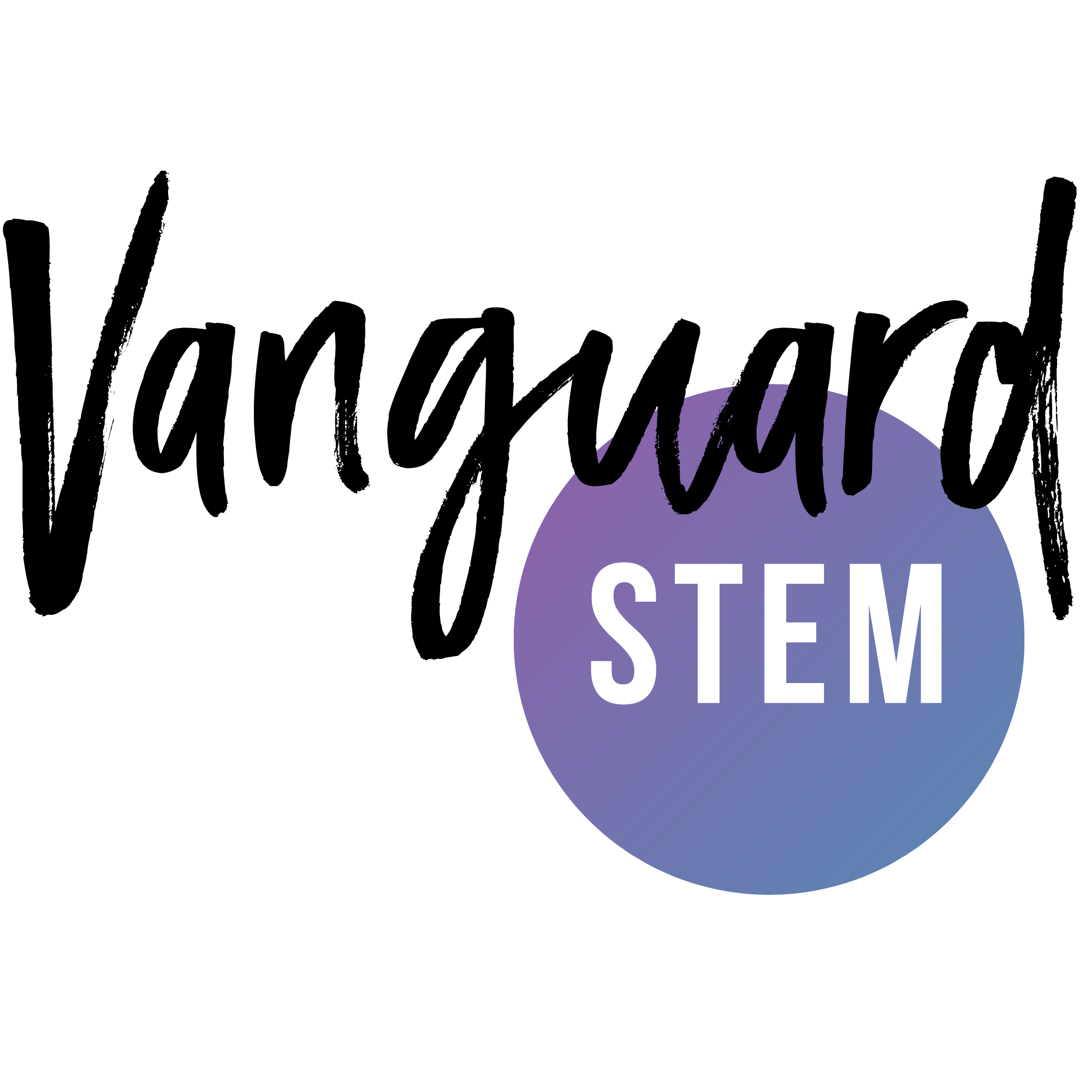Dr. Grayson’s story reminds us that is important that other Black, Indigenous, women of color and non-binary people of color interested in pursuing STEM degrees, see that there have been others who have successfully walked the path. We can learn from each other’s journey.
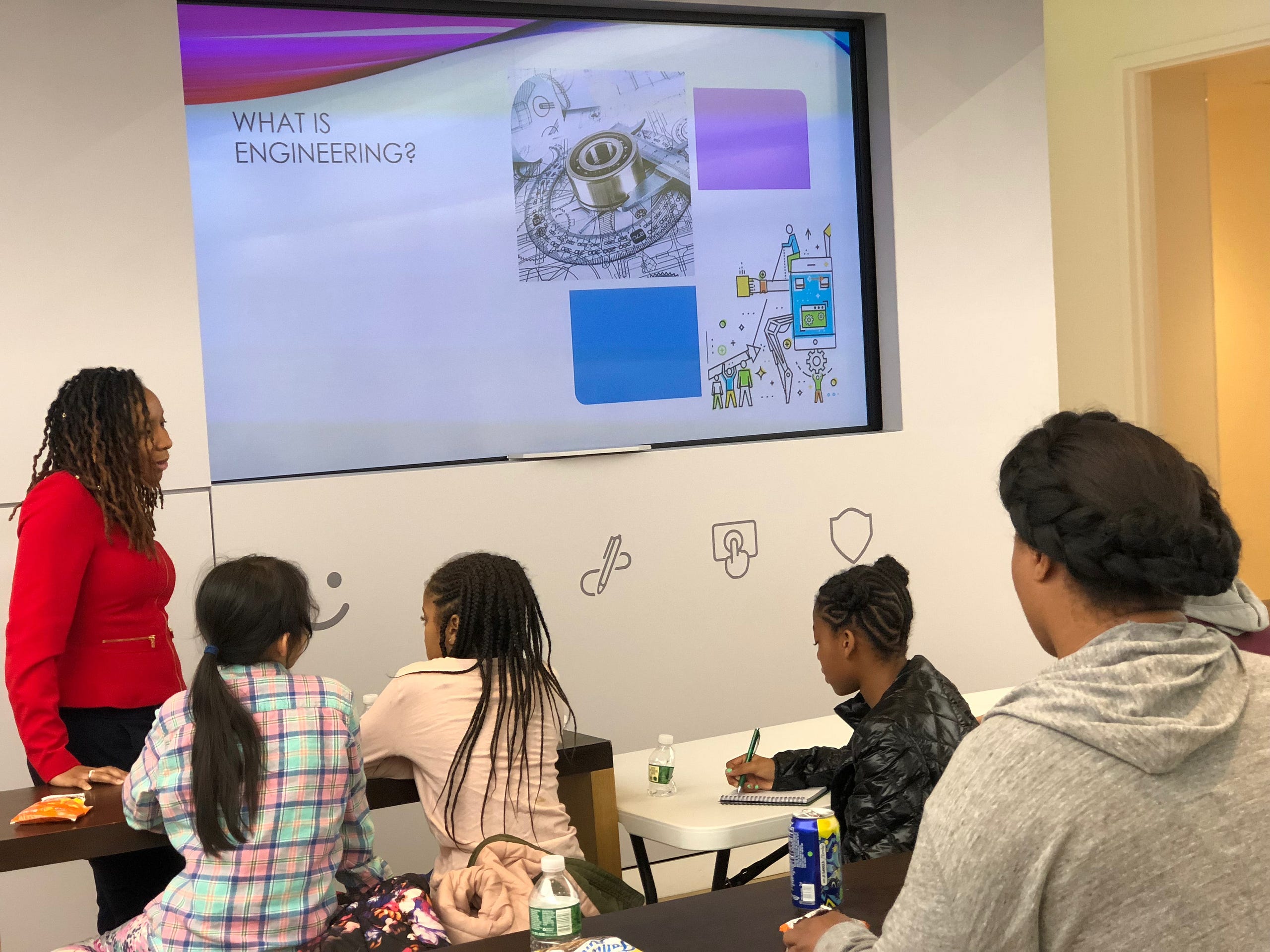
Responses may be edited for clarity and brevity.
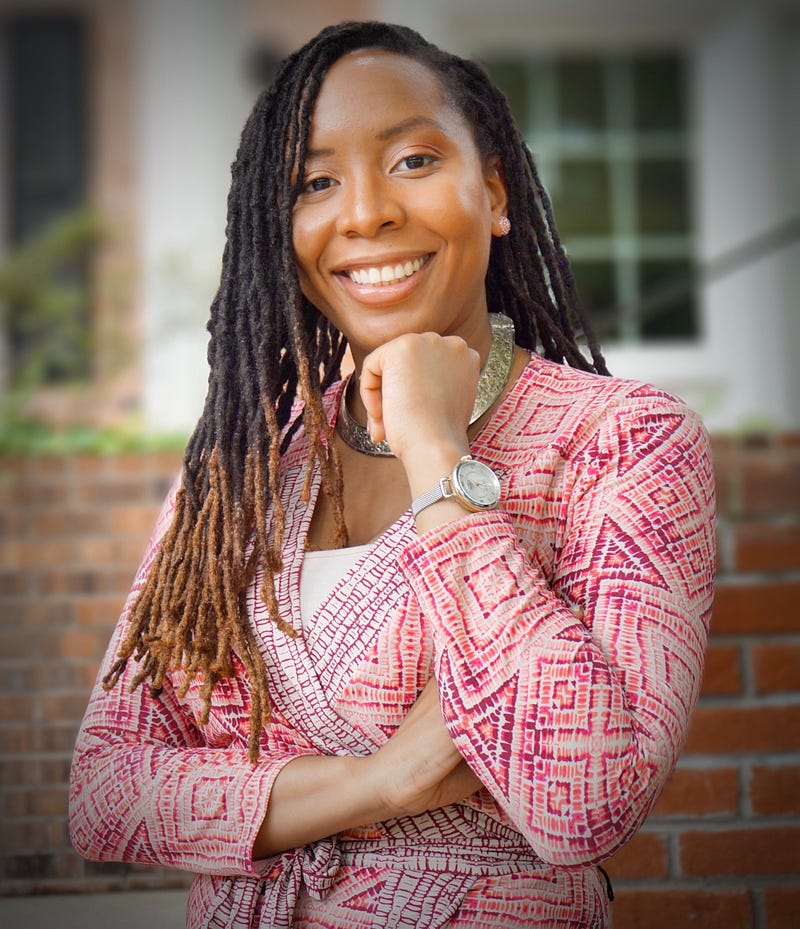
Where did you go to school?
- Adelphi University, B.S. Physics, Garden City, NY
- Cornell University, M.Sc. Mechanical Engineering, Ithaca, NY
- Cornell University, Ph.D. Mechanical Engineering (Wind Energy), Ithaca, NY
What do you do right now?
I am currently the Applications Portfolio Manager in our IT organization at Northrop Grumman Corporation. Before that, I was in the 3-year rotational program with the company right out of graduate school, called the Future Technical Leadership program. I chose this rotational program because after spending so much time in the lab in graduate school, I wanted to try something a bit different. This rotational program offered exactly that, with the opportunity to move around the country and work on different technologies. Although my background in school was mechanical engineering, particularly in fluid dynamics and wind energy which I’ll discuss below, I have had a variety of experiences. This has helped me to increase my skillset constantly. Each role has challenged my thinking, especially in the way I approached complex problems. My first rotation exposed me to software development, data analysis and modeling & simulation. In my second rotation, I had the opportunity to work for the Chief Technology Officer (CTO) for one of the company’s sector’s where I focused on research & development (R&D) portfolio management, particularly helping to shape the technology organization. My third rotation was split into a developer role with a focus on tool development for data analysis and strategy.
My Ph.D. research focused on wind energy in the built environment, particularly the impact of building geometry on the wind energy yield potential above the rooftops of buildings. The goal of my research was to place small-scale wind turbines on the rooftop of buildings as a way for building to provide their own energy and eventually electricity, bringing renewable energy closer to cities.
What made you choose your STEM discipline in the first place?
Growing up, I was always interested in the way things worked. After changing my first tire at age 15, I would look at an appliance or tool and visually see how I could use, fix and improve the things around me. At that time, I didn’t know what STEM was, but as I got older and more exposed to science, I realized that Physics aligned with what I was interested in. Once I pursued Physics at my undergrad, Adelphi University, I had my first Summer Undergraduate Research Experience. That played a pivotal role in my life because that summer exposed me to engineering. I was assigned to a mechanical engineering lab with a graduate student mentor. During those 10 weeks, I got to understand and see the Physics actually being applied to a real-life problem. That motivated me to pursue my Ph.D. in Mechanical Engineering because I wanted to learn more and know more about engineering.
What’s one piece of advice you wish you had when you started your STEM journey?
You don’t have to pursue STEM only. I always thought that if I chose STEM, I couldn’t do anything else. I wish I knew that you could pursue STEM and other passions. You could even integrate the two. As an engineer, I never imagined that I would add speaker and author to my name, because growing up, I saw the generation before me really buckle down to one career path. Now I have learned through the real-life experiences I have recently had that I can integrate my love for STEM into other passions like writing, speaking, blogging and more. I took the time to invest in myself and these other passions by doing a public speaking training program, and also writing my first book, Hooded. I have also planned weddings (and I have enjoyed it) thanks to my analytical engineering mind :). The opportunities are endless.
[Editor’s Note: We are elated that Dr. Grayson’s book, “Hooded: A Black Girl’s Guide to the PhD is the first book in our #VSGetsLit Book Club. We are giving away a free copy this Friday, February 5, 2021 and every Friday this month. Check out this post to find out how.]
You don’t have to pursue STEM only. I wish I knew that you could pursue STEM and other passions. You could even integrate the two.
Do you have any woman of color in STEM sheros? Who and why?
There are so many women I admire but I would love to highlight my fellow planning council members of the STEMNoire organization. They all have amazing stories, each of them unique.
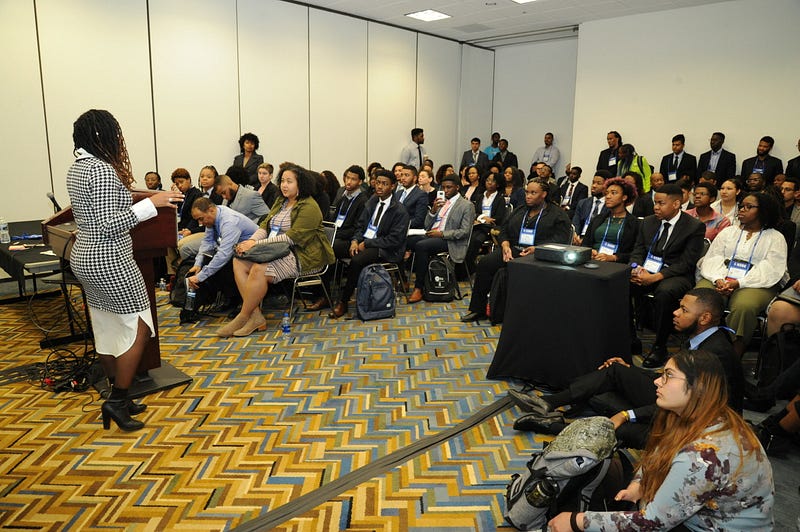
What else are you passionate about?
I actually love planning events. I have planned weddings and family reunions for 100+ attendees. I also enjoy cooking (had a recent cook book feature) and I just became a plant mom so cooking with my own veggies and herbs makes it that more special.
My most recent passion has been writing. I have a blog called: Black Girl’s Guide to Grad School but in the past year, I wanted to share so much more of my story that I turned that into a book: Hooded: A Black Girls Guide to the Ph.D.
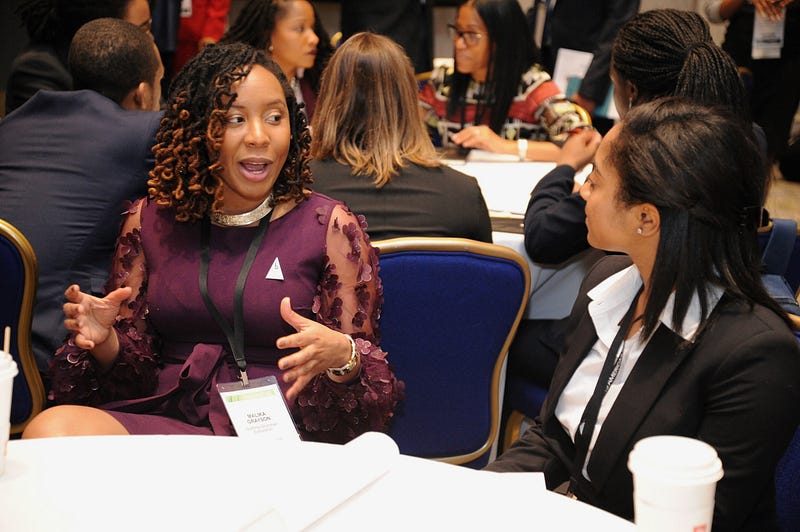
Why do you think it’s important to highlight Black, Indigenous, Women of color in STEM?
I remember walking into the first day of my PhD program and realizing that no one looked like me. Throughout my journey, I remembered thinking “I wish there was another Black woman I could go to in order to help me navigate.” That experience is to me a reminder of why we need to continue highlighting WOCinSTEM. It’s important for our stories to highlighted and heard. It is important that other women interested in pursuing STEM degrees, see that there have been others who have successfully walked the path. We can learn from each other.
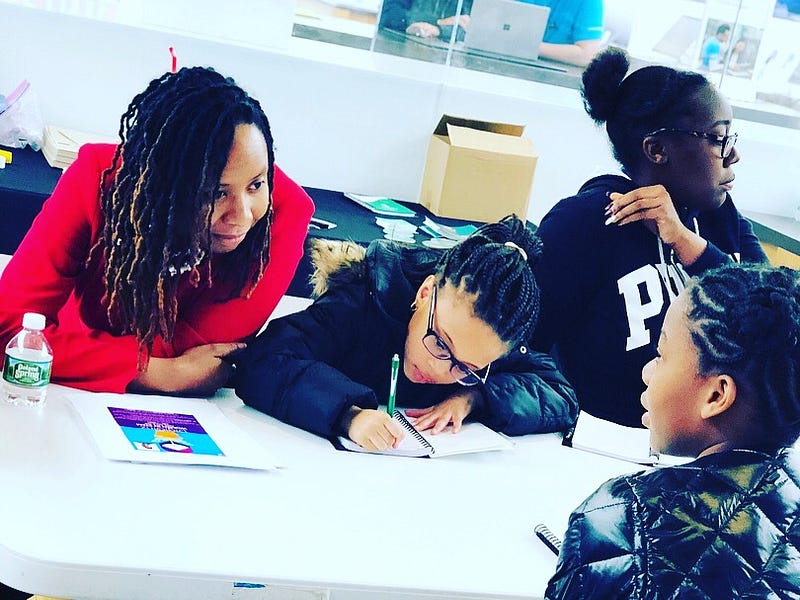
Are there institutions, groups or organizations you want us to shoutout?
Black Girls Guide to Grad School (ig: @blackgirlsguide2gradschool), STEMNoire (IG: @stemnoire)
How has the COVID-19 pandemic affected your STEM identity and interests, if at all?
The pandemic has really helped me to think about my STEM identity and how I would like to show up in this space. During this time, I have really learned what it means to be your true and authentic self because I think that is what so many of us needed during this time. Being vulnerable has grown my community and it has reminded me that I don’t have to be an Engineer by day and a STEM advocate by night, I am one in the same and I can be unapologetic doing them both.
Is there anything else you’d like us to know?
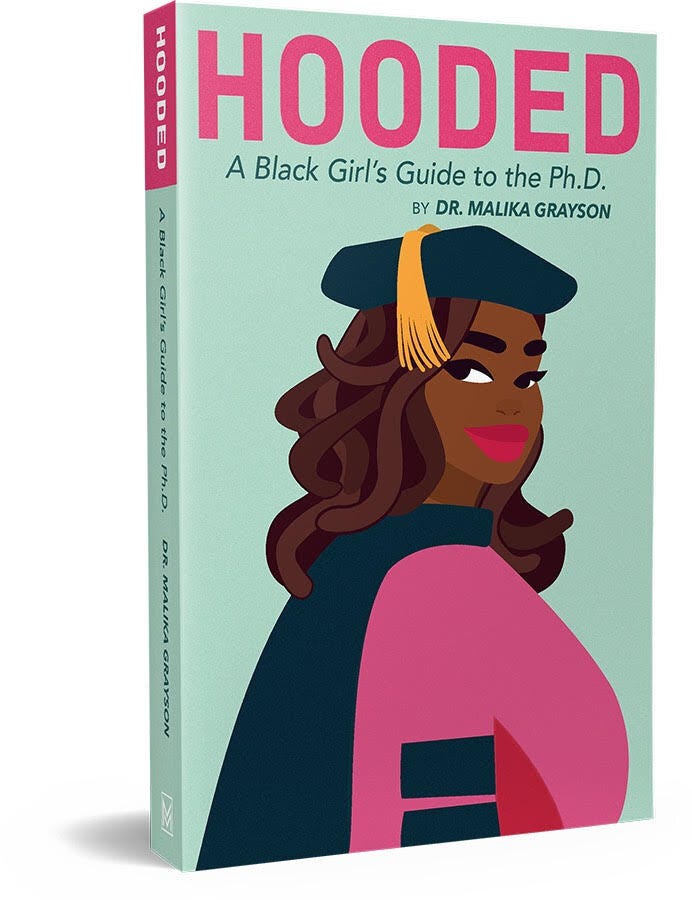
Walking into my PhD program, I was the only Black person in my cohort. It really resonated with me that I didn’t see myself represented in those who would be my colleagues and professors in my department. I remember thinking, I wish I had someone who I could turn to in order to ask about their experiences. It took me a few years to wrap my think about my journey and I realized it was something that I needed to share in the hopes that someone else reading it wouldn’t feel alone on their journey.
You can find Dr. Grayson all over social media: Malika Grayson (medium), @drmalikagrayson (ig), @BGG2gradschool (twitter), Dr. Malika Grayson (fb, LinkedIn).
Thank you, Dr. Malika Grayson, for sharing your story, wisdom, grace and insight with us. You’ve been doing the work to educate and prepare Black women for graduate school for years we are elated to celebrate you!
This article was originally published on February 3, 2021 on VanguardSTEM.com as part of our #wcwinstem series.
If you enjoy our weekly #WCWinSTEM features, consider donating to our parent not-for-profit, The SeRCH Foundation, Inc., to help support this work.
